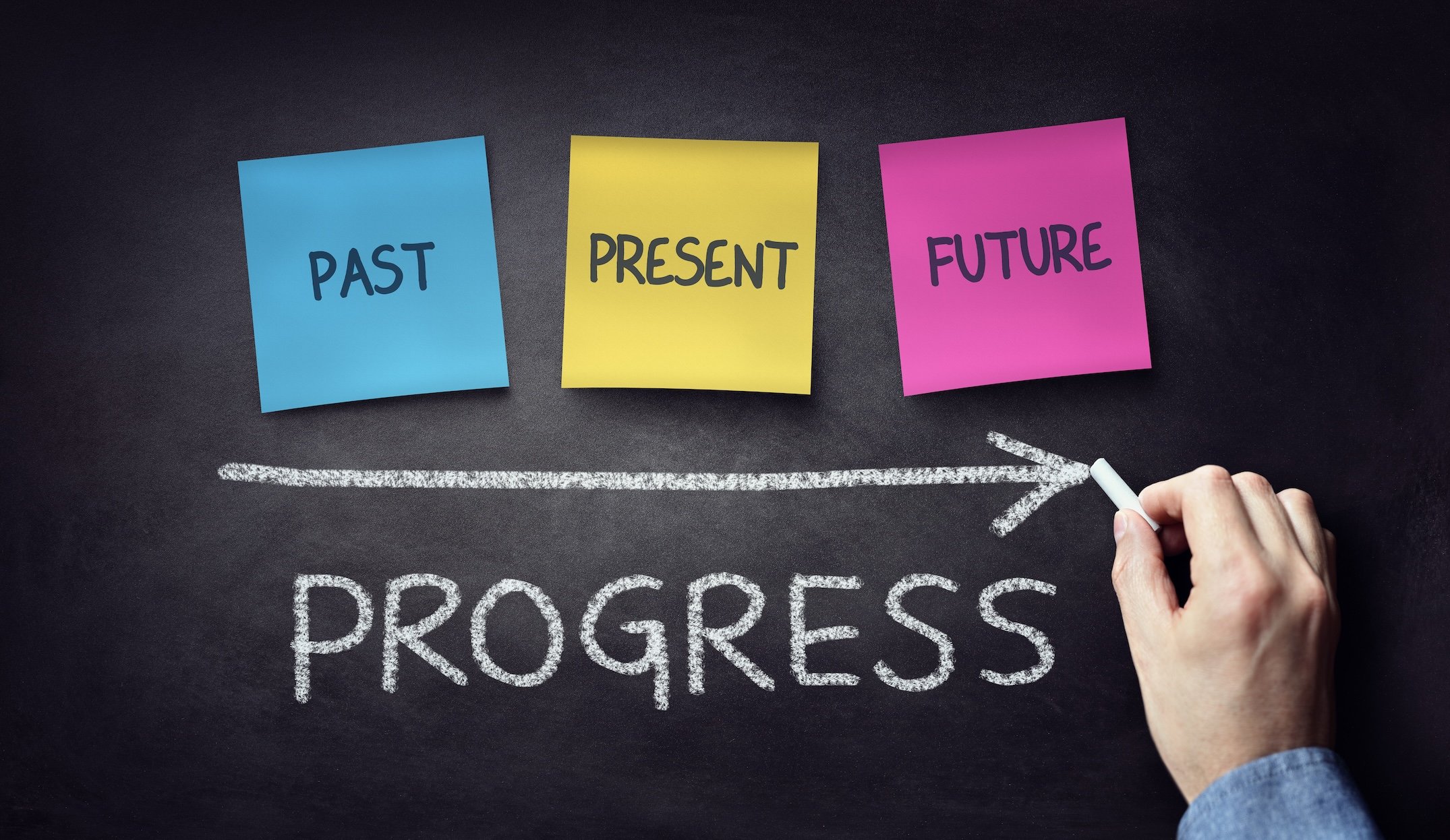Writing the Future-Focused Admissions Essay
When you’re applying to graduate school, it’s important to keep your admissions essay focused on the future. But what does it mean to be “future-focused”? It means making sure that everything you say has to do with what you want to do in the future! In this blog post, we’ll walk through what this looks like in the different parts of your essay.
When you’re applying to graduate school, it’s important to keep your admissions essay focused on the future. But what does it mean to be “future-focused”? It means making sure that everything you say has to do with what you want to do in the future! In this blog post, we’ll walk through what this looks like in the different parts of your essay.
Your Introduction
In this first paragraph, you’re setting up why you want to attend a particular school. If you start your essay with a story or vignette, that comes from the past, but you also want to make sure that what you’re saying about your past points to your future. Perhaps you had a meaningful experience in an interaction that was similar to the type of therapist-client relationship you hope to have after you finish your graduate program. Write about it in a way that makes it relevant to your future goals!
Don’t worry about sounding professional. Sound like you. There are over 1.5 billion websites out there, but your story is what’s going to separate this one from the rest. If you read the words back and don’t hear your own voice in your head, that’s a good sign you still have more work to do.
Be clear, be confident and don’t overthink it. The beauty of your story is that it’s going to continue to evolve and your site can evolve with it. Your goal should be to make it feel right for right now. Later will take care of itself. It always does.
Your Background
Here’s where being future-focused in your graduate admissions essays gets tricky. An applicant needs to tell the admissions committee why they’re interested in a particular program and a particular eventual career path, and that hinges on what you’ve done before in your life that got you thinking about this next step. Right? Well… sort of. The statement of purpose or personal essay doesn’t need to (and shouldn’t) repeat everything on your resume. It also doesn’t need to include every relevant moment that pointed you in this new graduate school direction.
What it does need to do is include details that might be relevant to your future work. If you’re applying to work in a medical field, this might mean summarizing your volunteer, internship, and certificate trainings as an EMT or nursing assistant. In fact, you could say that “in my volunteer and certificate trainings, I learned that… ” Then give an overview point about what you learned. This kind of skill or trait that you learned about should be one that will be useful in your graduate program and in the career you hope to have after that.
Unlike a cover letter for a job, a personal statement or statement of purpose isn’t suppose to summarize what you’ve done that is relevant for your new position. Nope! The main purpose of an SoP or personal statement is to convince the admissions committee to let you into their program. That’s it. And that means that you need to talk about your past from the point of view of your future.
The “Why” Sections
Which brings us to perhaps the most obvious two elements of your essay… “why this school” and “career goals.”
Almost every graduate admissions essay (except, perhaps, those submitted through an admissions system that distributes a main essay to all of your schools) wants to know why this school fits your interests, or why they should accept you into their program. We call this the “why” question—”why this school.” Here’s your ultimate chance to be future-focused. Research the school—its classes, faculty, extracurriculars relevant to your program, internships, alumni—anything that might help connect to your interests. Instead of writing, “if accepted to this program,” write as if you’re already there! Say, “when I am at School Name, I am excited about…” or “I look forward to…”
You can mention specifics here. “Working with Professor Lastname will help me develop my understanding of Topic, which will play a prominent role in my future career as a Person Doing Cool Things.”
Then, talk about your career goals. It’s ok to be open-ended or not to have a concrete plan. Just emphasize the idea that this school or program can help you get to where you want to be when you finish the program. Connect the dots for them. The admissions readers are looking at a lot of applications and you don’t want them to have to think about “why you.” If you keep the emphasis on what your goals are, they’ll know exactly why they should admit you!
Need more help? Feel free to reach out to me and we can talk about how to craft your own future-focused graduate school admissions essay!
How to Outline a Personal Statement
When you’re writing a graduate school personal statement, you need to convince the admissions readers that you’re a great fit for the school, and that the school is also the perfect fit for your particular interests. One way to approach these “two main questions” is with an excellent graduate school personal statement outline.
When you’re writing a graduate school personal statement, you need to convince the admissions readers that you’re a great fit for the school, and that the school is also the perfect fit for your particular interests. One way to approach these “two main questions” is with an excellent graduate school personal statement outline.
But how do I answer those two main questions?
The answer lies in your essay’s outline, its basic structure and flow of ideas. While you’re of course free to organize your essay any way you want — so long as it reads well, makes sense, makes a good case, and so on — there’s a particular outline that can send your essay in the right direction. This outline works especially well if you’re applying to a particular school. If you’re writing one essay for a lot of schools, we can tweak it: more on that below.
Outlining a personal statement
Here’s what I’ve found works well for a graduate school personal statement outline:
Begin with an opening story or “vignette.”
It often works well to start your essay with a brief story. This “vignette” brings your admissions readers into the action of why you’re interested in your chosen field.
Make it memorable, something that can only come from you. When I applied to graduate school in religious studies, I described how my father had given me books by religious studies theorists while I was still in high school, and how studying religion in college not only confirmed and strengthened that interest, but set me on the path to graduate school. I hoped it would be memorable (how many people have their dad giving them books like that in high school?), and I knew it also connected directly to my field of study.
Connect your story to your grad school interest.
In your opening paragraph, connect your vignette directly to an interest in studying your particular topic at this particular school and program. If it’s the kind of application that goes directly to a school, actually use the name of the field, the name of the school, and the name of the program.
Get back to your basics.
It won’t be obvious why you’re interested in your particular field or program, but you want it to feel obvious for the admissions readers. Your admissions essay should create a compelling narrative about why you should be chosen for a particular program, so show readers what it is about your personal, professional, and educational background that makes graduate school in this particular school/program the logical next step.
Just like when writing a cover letter for a job, you don’t want to rehash everything in your resume or CV. Instead, use this part of the essay to convey your interest in a way that goes beyond a resume list.
If you have a gap in your resume or some bad grades on your transcript, this section is an opportunity to address these in a positive way. Describe setbacks in neutral language, or find a way to talk how you overcame them.
Don’t forget to talk about the school!
After giving the admissions readers something about your background, it makes sense to move towards the present. Why this school is a perfect fit for your interests and goals, right now?
What classes, internships, professors, or other strengths make the school or program stand out for you? Connect those special parts of a school back to your goals and interests?
This part won’t apply to all essays; sometimes you need a general essay about your interest in a field or type of program, rather than an essay that goes directly to a particular school.
Remember your post-grad goals!
What are your goals for after you graduate from this program? Think about the future in this section of your essay.
Admissions committees want to know what you see yourself doing with a degree from their program. How will you be a credit to the field for which they train new colleagues, adding to its knowledge, research, or practice? Talk about your plans after graduation.
If you’re applying to a humanities PhD program, talk about what research you might want to pursue, and what kind of teacher or researcher you might like to be.
If you’re applying to a practical program, like counseling, physical therapy, or nursing, what kind of clinician will you be? What kinds of patients will you serve? How will you deal with a diverse clientele or with modern healthcare challenges?
Finish off with an enthusiastic and confident conclusion.
(The conclusion is always the hardest part, isn’t it. Don’t worry. You’ll get there.)
You’ll want to sound confident (but not too confident! We all still have some learning to do). Sometimes it helps to refer back to an experience you mentioned earlier in the essay, rounding things off.
Finally, if you’re writing the essay for a particular school or program, use the name of the school and/or program in your conclusion (and double-check that you use the right school or program name before submitting!).
What if this graduate school personal statement outline doesn’t work for your kind of essay or school?
if you don’t want to fit your life story into the outline above, that’s totally fine. Most stories don’t fit a neat outline, anyways—especially the stories of our lives. After all, the outline isn’t what’s important. The ideas in your essay are the important part. Most essay prompts have something to do with the the topics addressed above, anyways: your background, your goals, your interest in a field. As long as your essay these in there somehow, you’re on the right track.
Still feeling stuck? I offer a free 1/2 hour consultation to talk about your essays, or to think through how working with a graduate school personal statement coach can help your essay shine.
The Personal Statement’s Two Main Questions
When I work with admissions essay coaching clients for graduate school admissions essays, we often talk about the two “Main Questions” a personal statement must address. These questions get at the heart of every different statement a school requires. In fact, I like to think of your answers to these two main questions as the “thesis” of your personal statement. Everything your statement says should point back to these questions in some way.
When I work with admissions essay coaching clients for graduate school admissions essays, we often talk about the two “Main Questions” a personal statement must address. These questions get at the heart of every different statement a school requires. In fact, I like to think of your answers to these two main questions as the “thesis” of your personal statement. Everything your statement says should point back to these questions in some way.
These are the two main questions a personal statement should address:
The two main questions your personal statement should address include:
Why am I interested in this field or program?
Why am I a perfect fit for this school and program?
These may sound like they’re the same question! And although they’re very similar, they’re not quite the same. Let’s unpack each question a little bit more.
Question 1: Why am I interested in this field or program?
This question places the emphasis on you and your story. What is your background? Why do you want to go into this field or career? What personal, professional, or educational events, experiences, or ideas are pushing you to take the challenging and exciting step of applying to graduate school?
In your essays, you need to make sure that the admissions readers know why this school is a perfect fit for your background and your interests. You also need to show them what you hope to do after you finish the program. Question 1 looks at your interests and background. A clearly written essay begins with your background to your interest in a field of study. Then, the essay shows your readers why this particular school is the best fit. Finally, the essay focuses on how attending that program will help your particular career goals and further the mission of the program. (I’ll have more to say about structuring your essay in my next blog post!).
Question 2: Why am I a perfect fit for this school and program?
The second question shifts the emphasis from you to the school and the program you’re interested in.
In the personal statement, your job is to show the admissions readers, whoever they are, that you’ve done your homework about their school and their program. Find out what sets their program apart from all the others in your intended field. You can talk about particular faculty, specific courses, or special programs, internships, or opportunities the school offers. Do the faculty’s interests or courses match with yours? Perhaps the school has a particular certification, internship opportunities, or other special programs. Maybe it’s their approach to cultural diversity, online or hybrid learning, or how they value the whole person. Talk about as much of this as you can within the length!
The answer to Question 2 will show, rather than just tell, an admissions committee that their school is the place for you to be. Yes, you could write, “I strongly believe that I am a perfect fit for your graduate program in communications” (or whatever it happens to be), but there’s another way. Instead, dovetail your background and interests with theirs. For example, you could say: “My research interest in the intersection of race and gender in the women’s rights movement would benefit from studying with Professor Firstname Lastname.” Then say a bit more about what interests you about the professor’s work, courses, or research interests. This approach shows the admissions committee that you’re familiar with the program’s offerings and faculty.
Still have questions about the personal statement’s two Main Questions?
Not studying race or gender? Or you’re applying to a more practice-based degree, like physical therapy or divinity school? The same two questions still apply: why is your background and interests the perfect fit for this school, program, or field? What makes that particular school or program a perfect fit for you?
If you are applying to more than one school, you can tweak your answers. You’ll have the same general reasons for being interested in occupational therapy, psychology, or history (etc., etc.!) no matter the school. Your personal, educational, and professional backstory applies across essays, with a few tweaks, of course.
Sometimes, it’s not always clear how your graduate school personal statement’s two Main Questions apply to your essays. It can help to have a writing coach talk through your background, goals, and fit with a school. I offer a 1/2 hour free consultation to see if personal statement coaching and editing would meet your needs. Send me a note to be in touch, and I look forward to talking with you!




